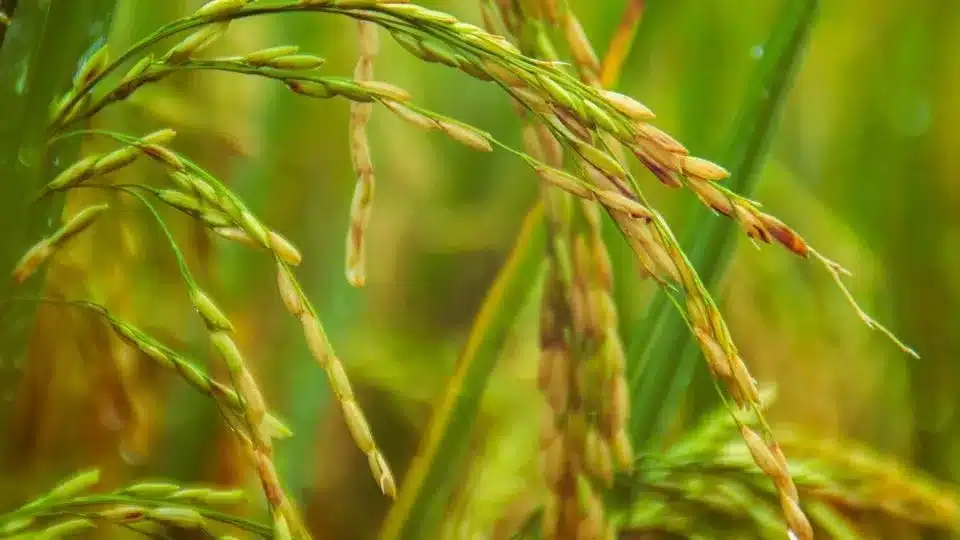Tags
Agriculture: Low-cost innovative methods of farming
In the face of rising global challenges like climate change and water scarcity, agriculture needs sustainable and innovative practices to secure our food supply and conserve precious water resources.
One such practice that has gained prominence in rice-cultivated areas in recent years is “zero tillage,” a technique that transforms farming and helps conserve water, making it a beacon of hope for sustainable food security and a greener future.
Zero tillage (also known as no-till farming and conservation tillage) is a method that refrains from traditional ploughing and tilling the soil before sowing crops. Instead, it involves directly drilling seeds into untilled, moist soil, leaving the ground undisturbed. The benefits of this practice are manifold, with one of the most significant being water conservation.
Agriculture is one of the most water-intensive sectors globally. In Pakistan, about 95 per cent of water is used for agricultural production. The unsustainable use of water for farming has led to dwindling water tables and water scarcity issues, especially in Sindh, where rice crops are legally cultivated in seven districts on the right bank and three districts on the left bank of the Indus.
The zero tillage method, which conserves water, could save about Rs4,000-5,000 per acre for farmers because the land is not ploughed
Rice is a high-delta crop that requires up to 1,200mm of water for consumptive use from sowing to harvest. Thus, the field remains moist enough, which is not suitable for deep ploughing or primary soil tillage. However, on that moist soil, grain drills are used for sowing Rabi wheat crops timely without applying a soaking dose of about 80mm of irrigation water.
Thus, zero tillage offers an innovative solution of using grain drills for timely sowing wheat crops on residual moisture by significantly reducing water usage. This leaves the soil undisturbed, acting as a natural moisture trap, preventing water from evaporating and allowing it to penetrate deeper into the ground. As a result, less water is required for irrigation, making it an eco-friendly and economically sustainable choice for farmers.
In Sindh, the rice crop is grown over about 1.7 million acres of land. Eliminating soaking dose during wheat sowing with zero tillage could save up to 0.5m acre-feet (MAF) of water if wheat is cultivated over a cropped area. Farmers quote a figure of about Rs4000-5000 per acre savings because the land is not ploughed.
In addition to water conservation, zero tillage is vital in preventing soil erosion. Traditional ploughing can expose the topsoil to wind and water erosion, leading to soil degradation and decreased soil fertility. Zero tillage retains the protective cover of crop residues on the soil surface, reducing the risk of soil erosion and promoting soil health.
This method also helps control smog since there is no need to burn rice stubbles
Zero tillage also contributes to carbon sequestration and reduced greenhouse gas emissions. It helps control smog as there is no need to burn rice stubbles. Keeping crop residues on the field increases organic matter in the soil, acting as a carbon sink. Healthier soils and reduced carbon emissions are critical components in the fight against climate change.
While water conservation is a significant advantage of zero tillage, it doesn’t compromise crop yields. In fact, this practice can enhance crop productivity over time. The undisturbed soil structure allows for better root development and nutrient access, ultimately leading to healthier plants and improved yields. It is reported that zero tillage may increase the yield up to the extent of 5-15pc compared to the traditional tillage method.
Zero tillage is not a one-size-fits-all solution, but it is a crucial part of the broader effort to make agriculture more sustainable and resilient in the face of climate change. By conserving water, reducing soil erosion, enhancing soil health, minimising smog, and bolstering crop yields, zero tillage is helping to shape the future of farming for the better.
As we look towards a future where water scarcity is an increasing concern, embracing innovative practices like zero tillage is not just an option, it’s a necessity. It is a shining example of how sustainable agriculture can lead the way in preserving our planet’s most precious resource — water — for generations to come.
So, as we continue to confront the challenges of the 21st century, it’s clear that farming for the future means incorporating practices like zero tillage that not only feed the world but do so with a responsible, water-conserving touch.
Prof Altaf Ali Siyal is from Sindh Agriculture University Tandojam and Pirah Siyal works at the Sindh Environmental Protection Agency
https://www.dawn.com/news/1798768Published Date: December 18, 2023






